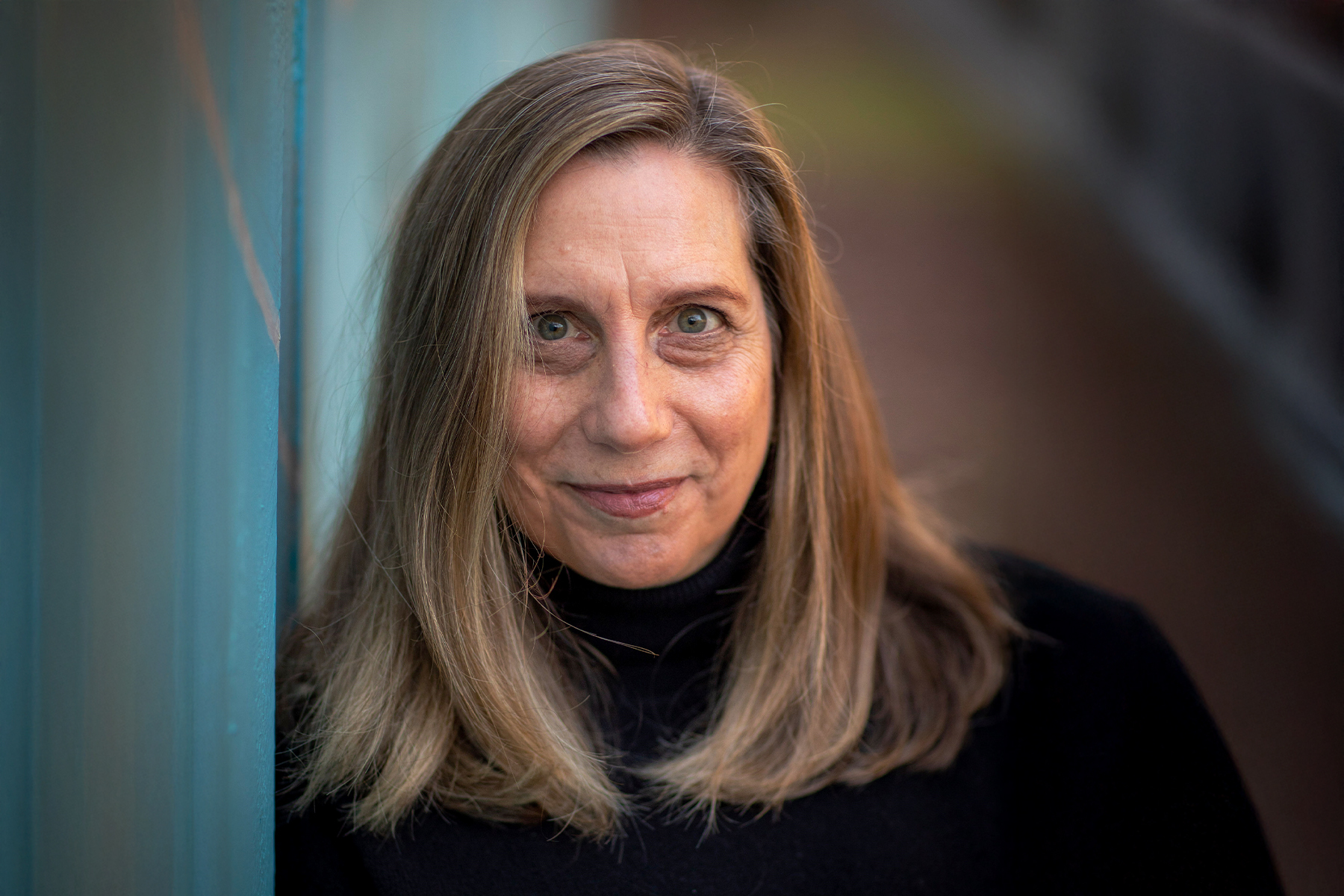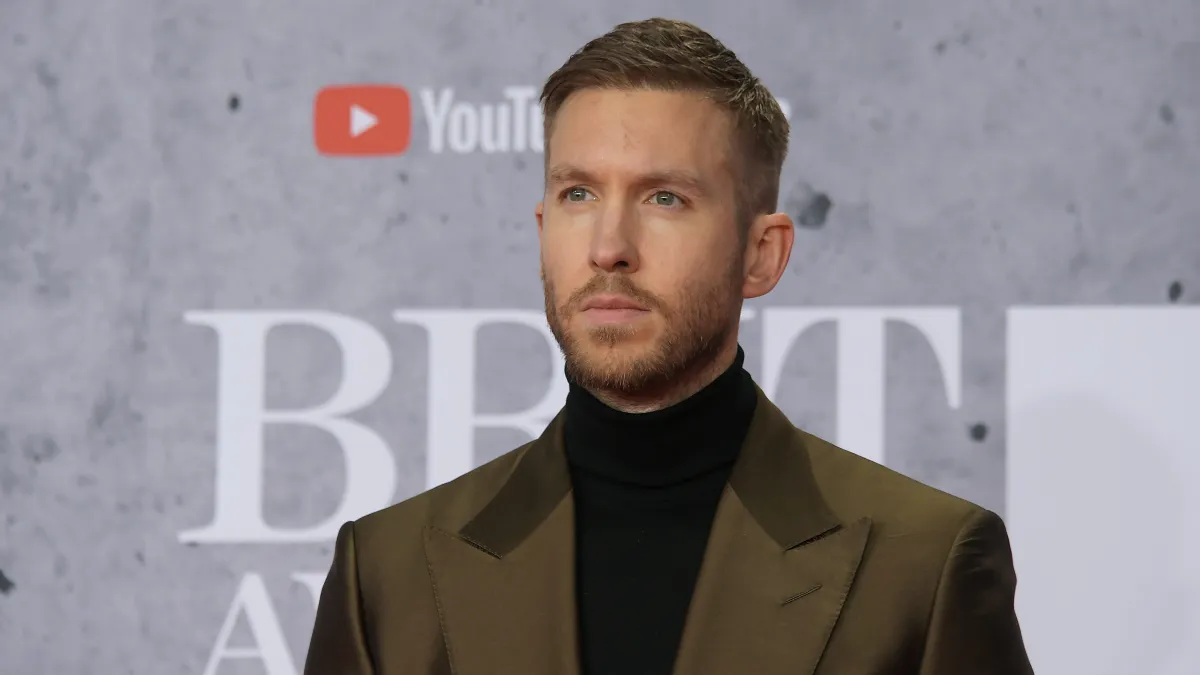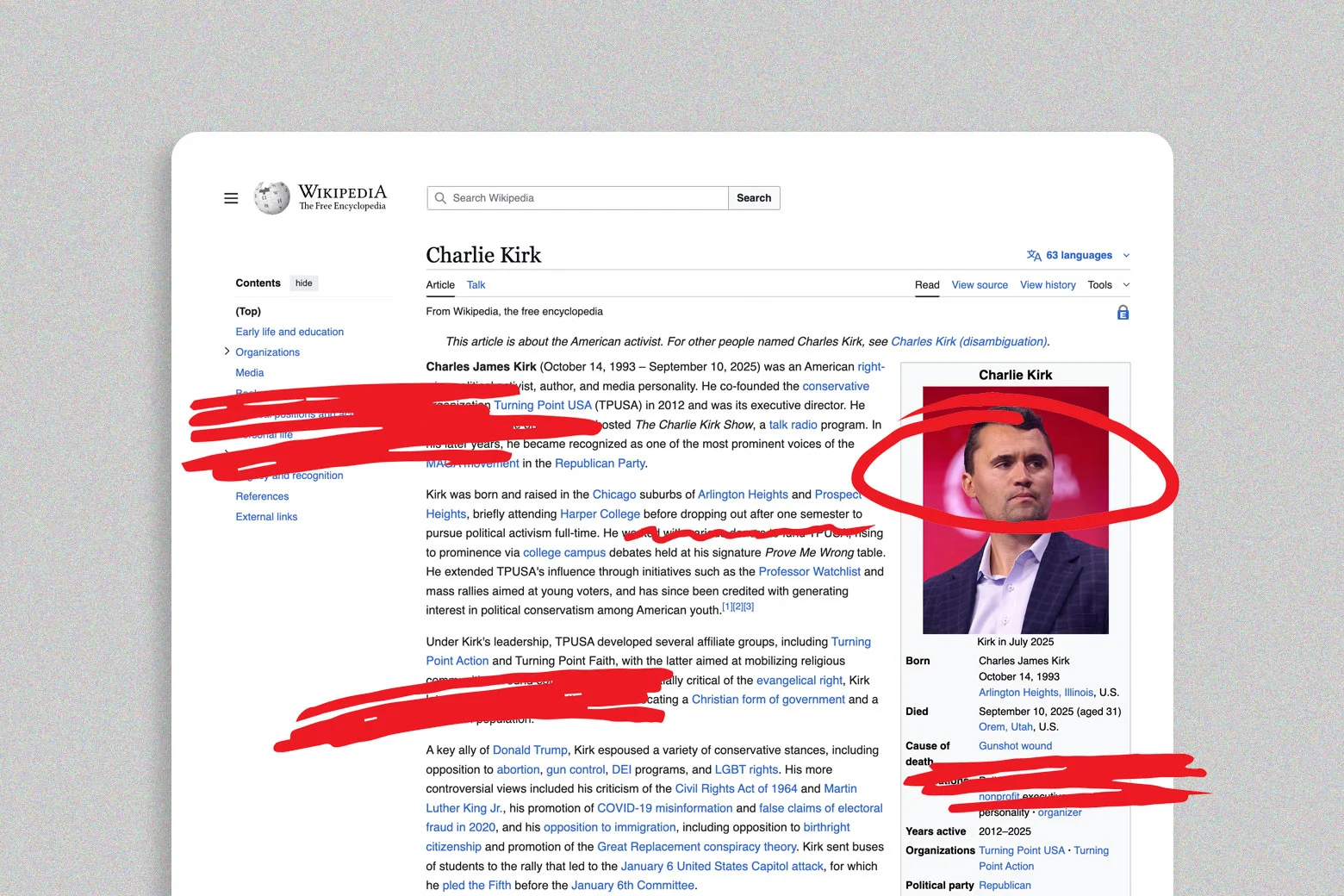By Marsha Lederman
Copyright thewalrus

W hen the October 7 attacks occurred on that Saturday morning in Israel, it was very late Friday on the west coast of Canada, where I live. It was still October 6, 2023. I had been to a Vancouver Canucks pre-season game with my son and a friend. The Canucks won; even for a lifelong Toronto Maple Leafs fan like me, it was a good night. It was Thanksgiving weekend, and my son was about to turn fifteen.
I have come to think of that evening as my last normal night. Like many children of Holocaust survivors, I have, since childhood, had regular nightmares about being hunted by Nazis. That weekend, what I had previously tried to consider a ludicrous, irrational fear came to life. I watched it on social media.
The Nazis of my nightmares had turned into Hamas terrorists. I had written a whole book about how intergenerational trauma has affected me—separation anxiety; a tremendous pessimism; a tendency to catastrophize; a fear, even in happy times, that the other shoe is always about to drop.
And then it dropped. On October 7, 2023. And if I thought my inherited trauma had been an issue before, well, that was nothing. This invasion went even deeper, seeping into every aspect of my life. I began to exist in a state of tremendous anxiety and fear, worried about things that would never have given me pause in the Before Times.
The antisemitism reached a level I never would have expected to witness in my lifetime. On social media, university campuses, at workplaces. As a reporter writing about this, I would become a repository for other people’s stories. Almost daily, someone would reach out about an internal memo with antisemitic undertones (or worse), an uncomfortable customer service experience, antisemitism at their child’s school. I could go on. I was shocked by what I was hearing—from people in the education system, health care, the arts.
On October 7, I knew immediately that Israel would retaliate, that it would be terrible for Gaza, and that there would be repercussions globally with a rise in anti-Israel sentiment. But even I, Queen Catastrophizer, did not expect things to escalate as they did. Even I, clear-eyed, glass-half-empty pragmatist, did not expect the war to be what it became.
My question for myself that Thanksgiving weekend, professionally, as an opinion columnist for a national newspaper, the Globe and Mail, was: Did I want to write about what was going on in Israel, to weigh in on as public a forum as I could imagine? On this terrible thing that had happened and was happening? (It seems crazy now that I even asked myself that question, given how this story would come to dominate the headlines for a year and well beyond.)
I thought: Whatever I write, whatever I say, I am going to get it. I am possibly going to get it from all sides. It will be pointed out that I am Jewish, and the argument will be that I’m too biased to write about this. But also, I am a progressive, liberal Jew, who is already on record as being opposed to the government of Benjamin Netanyahu. I consider myself a humanist and have always desperately wanted peace with the Palestinians and dignity and security for all. I regret to write that I knew some members of the Jewish community would not be comfortable with my opinions on this matter either. It felt inevitable that I would anger people on all points of this tricky spectrum.
What Counts as Antisemitism? The Debate That Is Dividing Communities
There’s a Path to Peace in Israel and Palestine
Is the Joint Statement on Gaza Too Little, Too Late?
D id I really need this? Could I handle it? My intergenerational trauma had already been triggered in such a profound way. But I couldn’t stay silent.
I chose to work in the field of journalism in part because of a noble, if incredibly naive, belief. I thought if reporters had been able to tell the story of what was happening in Nazi Germany and then during the full-blown Holocaust, the genocide could have been prevented or curtailed. Lives could have been saved. Maybe my grandparents’ lives. I never got to meet them.
But what I learned is that reporters did tell these stories. These stories were published in the Globe and Mail, the New York Times, and elsewhere. And nothing happened. Well, everything happened. It was allowed to happen. So journalists can’t always change the world. Still, we can never stop trying. Otherwise, what’s the point?
Believe me, there were many times over that year, especially in the first dizzying months, when I thought: Just stop. Step away. Write about something else (as I often did, I should state). Leave this to others with less skin in the game.
But I felt I had a responsibility to write about this terrible time—for Palestinians, for Israelis, and for Jews and Muslims in the diaspora. I sat alone on early mornings and late nights at my dining room table, reading the catastrophic news from the Middle East, reading open letters that intensified my isolation, writing about what I could. I lit a candle in the window for the hostages. I drank a lot of coffee.
I am trying to remember now when I stopped lighting that candle every dark morning. When the loss and horror became so everyday that they threatened to become routine. What was my candle going to do for the hostages? Or the thousands of dead Gazans?
I felt I had a responsibility to write about this terrible time—for Palestinians, for Israelis, and for Jews and Muslims in the diaspora.
We all deserve peace. Palestinians, Israelis, and the rest of us. As I wrote, I struggled with terminology. Who did I mean when I talked about the “other side,” exactly? “Pro-Palestinian” didn’t feel like the right term for some of what I was seeing. I am pro-Palestinian. So are many Jewish people who participate in pro-Palestinian protests. And many of us who don’t. Palestinians deserve good, safe lives, just as Israelis do. They deserve homes, food, equality. Security. Life. They did not deserve the war. Or the displacement and persecution they have experienced for decades. But I was infuriated at how the Hamas terrorists who went into Israel and murdered and raped and took people—children!—hostage were being held up as freedom fighters, as noble resistance. Including by feminists and other progressives I have been aligned with on other important issues. I couldn’t believe what I was witnessing. I could not understand it.
I did my best to reflect my values in the pieces that I did write, values that are rooted in my Jewish upbringing—and that stem from the “never again” mantra that I also grew up with. Never again—for anyone.
Looking back, even before October 7, 2023, I was surprised to see that I had written far more about Jewish identity than I had thought. It was something I believed I had rarely referenced in my work. I was wrong about that.
This goes back to the first piece I ever wrote, as a freelancer, for the Globe and Mail, the newspaper that would later become my professional home and in many ways my life. It was about a trip to Poland that I took in 1998 with my mother, sisters, a cousin, and my niece. I called it “Going Home to Auschwitz.” Imagining being in that place with my mother, who had survived the concentration camp, was excruciating and empowering. An educational publisher reproduced that essay for a language arts textbook. I still hear from students, occasionally, who have read it and want to ask me questions or share their thoughts. These letters are very special to me.
There was little after that essay that reflected my Jewish heritage—until a 2012 encounter with the celebrated German Canadian artist Fred Herzog. In my initial draft of that story, which was about some shocking things he had said to me about the Holocaust during an interview about his life and photography, I had included only one line about my own background: “(Both of my parents were Holocaust survivors.)” One parenthetical thought.
But my editor at the time had a vision: the fact that of all the people Herzog could have said these things to, he had said them to me. My editor felt that my story was an important element, and so we made the decision to include it. I thought of that as my “coming out” as a journalist who was Jewish. We called it “The Collision.”
And then, in 2022, I published a memoir about intergenerational trauma and the Holocaust, further solidifying my identity—whether I had wanted to or not—as a Jewish journalist. Had I not written that book, I might have felt less comfortable writing anything that referenced my Jewish identity, but the jig was up, and so I continued.
It set the stage, in a way, for everything I have written since October 7, 2023. In those first few months, I felt like I had gone from a journalist who happened to be Jewish to a Jewish journalist. I was not very comfortable with that shift in perception. Or, frankly, with how I started viewing myself. There were collisions all around.
I should also state that I am in no way asserting myself as a voice for Jewish Canadians, journalists, or Jews in general. The Jewish community is diverse and not at all homogenous; there is a huge range of opinions on this issue and on all matters, including within tight family units.
At the same time, my writing is personal. This writing comes from a very particular point of view. I was observing all of this as a Jewish person in the diaspora—alarmed by the October 7, 2023, attacks—alarmed by the antisemitism which resulted in Canada and around the world. I was also gutted and furious about the victims of the war in Gaza. That pain has been searing. Even if I was accused again and again of not caring. I cared, and care, deeply.
I wrote specifically from my point of view as a progressive Canadian Jew who believes in a two-state solution. My writing was complemented by a lot of excellent writing in the Globe and Mail by Palestinians, Muslims, and other humanitarians with a wide range of differing opinions.
As a Jewish journalist, I suppose it was inevitable that Canadian Jews began reaching out to me with stories of the antisemitism they had been experiencing. Very few people were contacting me to talk about Islamophobia. I wasn’t the go-to person for that, understandably. (Although I am equally outraged by those stories.) So, in my pieces, the experience of antisemitism during this period was reflected to a much greater extent and dominated the narrative. It is also something I had personal experience with.
In those first few months, I felt like I had gone from a journalist who happened to be Jewish to a Jewish journalist.
My search for the humanitarian middle is a very personal one. What I wrote was informed not just by the horrible events but by my own background and history; there is no question that my writing was steeped in my own life experiences.
I was raised in a very Jewish enclave of Toronto, in a warm home that was nonetheless heavy with the weight of what had happened to my parents. They were Holocaust survivors, and their parents—my grandparents—were murdered in gas chambers. This dark history was always present, in some way; it was part of our identity. We observed the holidays, were (mostly) kosher in the home, attended an orthodox synagogue. My parents often spoke to each other in Yiddish (and Polish, when they really didn’t want us to understand what they were talking about). Still, we were primarily cultural, rather than religiously observant, Jews. It was—and is—a huge part of who I am.
We were also raised on an idyllic idea of Israel. It was portrayed to us as a magical place, our ancestral homeland that had become a geographic saviour for our people after the terrible events earlier in the twentieth century.
This is what we were taught at Hebrew school as well, which I attended part time, three sessions a week. There, we learned about the history of Israel, but it was from a very particular perspective. We were never told about what happened to the Palestinians as the state of Israel was established. We were taught this history as if it were a story with a happy ending.
One of my teachers would give us points for each correct answer we gave in class, whatever the subject. Accumulate a certain number of points and you would win a prize. The prize was often an Israeli tourism brochure.
When I was nine, my parents took the first overseas trip they would make during my lifetime—to Israel, of course. They came back full of wonder and stories of the land and of how our relatives were faring there. I couldn’t wait to go there myself, which I did, at the age of eighteen. I spent a summer there working on a kibbutz and travelling around. As I was mourning the unexpected death of my father the previous year, Israel came to the rescue. That summer was healing for me. And it was very fun. And, I know now, formative.
The history in this part of the world is complex (as it is in any part of the world), and it has been simplified to the point of absurdity. We often hear about these simplifications from the “pro-Palestinian” “side” (I put these terms in quotation marks because I reject the idea that there are two distinct “sides” and that those who support the existence of a state of Israel, like me, are therefore anti-Palestinian). But on the other “side,” many of us were also raised on a simplified story, one that left out the experience of, yes, the other side.
I consider myself a progressive Zionist, which many would call an oxymoron. I disagree.
That said, I believe strongly in Jewish self-determination and in Israel’s right to exist. I disagree strongly with how it has been existing: the occupation, the settlements, the perpetual agony of Palestinians in Gaza and the West Bank. The displacement, the violence, the racism, the humiliating treatment. It is wrong.
My hope is for a two-state solution. This is not everyone’s hope, I know.
Believing in Israel’s right to exist makes me a Zionist, which has become a very dirty word in some circles. I consider myself a progressive Zionist, which many would call an oxymoron. I disagree. I call for change in Israel, and I call for an independent Palestine alongside it. Many disagree with that position as well. There is a lot of disagreement in all of this, everywhere. Friendships have ended over it.
I consider myself human first. I am horrified at all that we have lost in this terrible war: the lives, first and foremost. God wept. We all should.
The other loss for me, personally, has been profound: The feeling of safety and security. The comfort of never having to worry about being judged because of the family I was born to, the ethnicity I was born into, the beautiful culture I was so fortunate to inherit. The loss of that feels like a death of something, a great betrayal. It has been shattering.
Adapted and excerpted from October 7th: Searching for the Humanitarian Middle by Marsha Lederman. Copyright © 2025 Marsha Lederman. Published by McClelland & Stewart, a division of Penguin Random House Canada Limited. Reproduced by arrangement with the publisher. All rights reserved.



